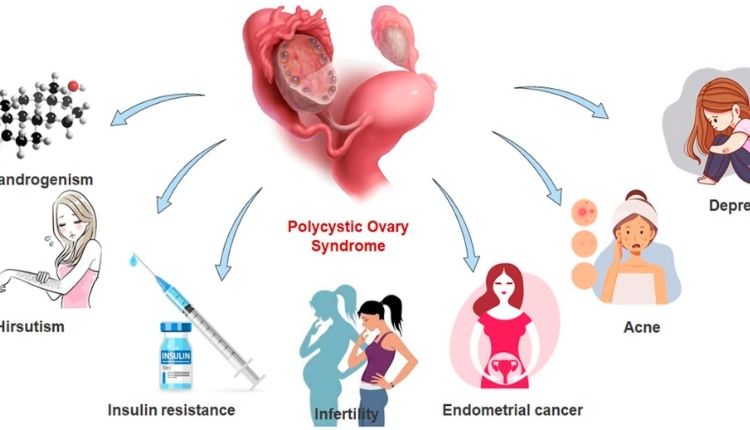Depending on the context, PCOM can mean Philadelphia College of Osteopathic Medicine, polycystic ovarian morphology, or even refer to various communication and computing terms. Due to its versatility, PCM has become an important keyword that connects more disciplines, each of which has its unique meaning. To fully appreciate the PCM value, it is important to explore its different meanings, its use across sectors, and the influence that it has on both professionals and society.
PCOM in medical education
One of the most common links to PCM is Philadelphia College of Osteopathic Medicine. This institution was founded in 1899 and developed into one of the most respected medical schools in the United States. PCOM offers degrees in osteopathic medicine, pharmacy, psychology, assistant studies of physicians, and biomedical sciences. Its mission is to train healthcare workers who are not only qualified in the treatment of the disease but also dedicate themselves to preventive care and overall health.
PCM emphasises the holistic approach to medicine and encourages future doctors to look at symptoms and understand patients as individuals. The curriculum integrates advanced medical knowledge with compassion and empathy and ensures that graduates are ready to cope with complex health challenges. With more campuses, state-of-the-art facilities, and strong legends, PCM remains a leader in health care.
PCM and polycystic morphology of the ovaries
In the field of gynaecology and reproductive health, PCOM is an abbreviation for polycystic ovarian morphology of ovaries. This term describes the appearance of ovaries that show more small follicles, often associated with polycystic ovarian syndrome (PCOS). While PCM is not necessarily the same as PCOS; it can be a diagnostic feature in combination with other symptoms such as irregular periods, hormonal imbalance, and metabolic concerns.
Medical research emphasised the importance of distinguishing between PCM and PCOS, because not all women with PCM experience a whole range of symptoms associated with the syndrome. PCM understanding allows doctors to provide more accurate diagnoses and develop personalised medical plans. For many women, early detection and treatment of PCOS-related conditions can significantly improve the quality of life and fertility results.
PCOM in communication and technology
In addition to medicine, PCM will also find its place in the world of communication and technology. In some contexts, PCM applies to protocols or systems designed for efficient communication between devices or networks. With the rise of digital infrastructure, the concept of communication optimisation has become necessary. PCOM-related technologies often focus on trouble-free data transfer, low latency, and secure connections.
Whether in computer networks, cloud computing or telecommunications systems, PCM can be used as an abbreviation to describe certain processes or models that allow interaction between hardware and software. This reflects how the abbreviation develops to correspond to the technological landscape, where abbreviations are often accepted for efficiency.
Educational role of PCM institutions
In addition to their medical focus on PCM-related institutions, they also expand their influence on education. Philadelphia College of Osteopathic Medicine has built a partnership with hospitals, clinics, and research centres and provided students with practical educational opportunities. Such institutions support innovations by mixing academic knowledge with real-world applications.
In addition, PCOM emphasises community services and prepares healthcare workers to deal with individual and public health. Involvement in community field programmes gains experience and, at the same time, has a positive impact on insufficiently operated populations. This combination of education and services emphasises why Graduates are highly appreciated in the medical field.
PCOM and holistic health perspectives
Another dimension of PCM in the medical context is its strong harmonisation with holistic health care. Unlike traditional approaches, which can only focus on disease, osteopathic medicine, at the core of PCM philosophy, focuses on physicians to focus on mind, body, and spirit. This approach to the patient has gained popularity worldwide because more individuals are looking for natural, preventive, and complex health care methods.
The influence of professionals trained at PCM exceeds clinical practice. Many graduates have become leaders in research, public health policy, and wellness law. This shows that PCOM is not only an institution but also a philosophy that continues to form modern medicine.
PCM and research posts
PCOM consistently contributes to progress in health research. Its research initiatives are of global importance, from exploring new possibilities of treatment of chronic diseases to the investigation of the basic causes of PCM in gynaecology. Students and faculty participate in pioneering projects that often lead to innovations in treatment methods, diagnostic instruments, and public health strategies.
This research environment ensures that PCM remains at the forefront of medical discovery. By prioritising evidence-based practice, the institution helps to bridge the gap between laboratory findings and clinical applications. This has a direct impact on the patient’s results, which demonstrates the far-reaching effect of PCM’s commitment to progress knowledge.
PCOM in a global perspective
Although rooted in the United States, PCOM’s range is not limited by geography.
The contribution of knowledge, training experts, and influencing health practices around the world has become a global symbol of excellence. It is a reminder that abbreviations, even if they have a simple appearance, can have a strong meaning in different sectors.
Conclusion
PCOM is a versatile term that includes different disciplines, each with important consequences. In . In women’s health, PCM applies to polycystic morphology of the ovaries, a condition with a significant diagnostic value. In technology, PCM reflects progress in communication systems. This diversity emphasises how one shortcut can embody more knowledge and practice. Whether in healthcare, research, or technology, PCM continues to affect lives, shape institutions, and contribute to a better understanding





